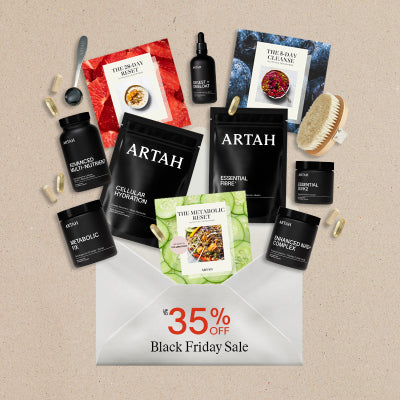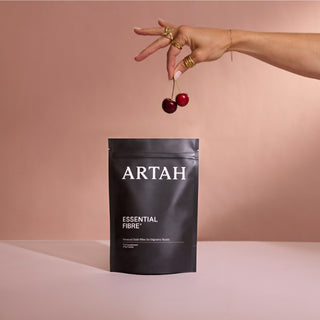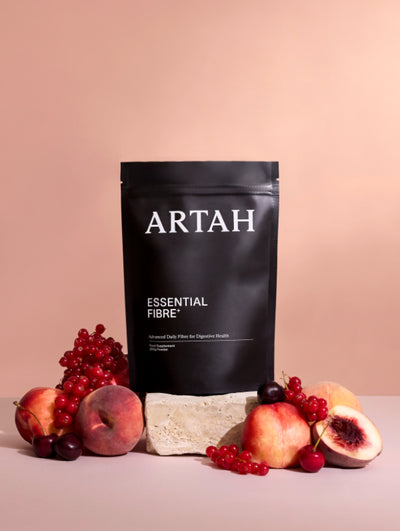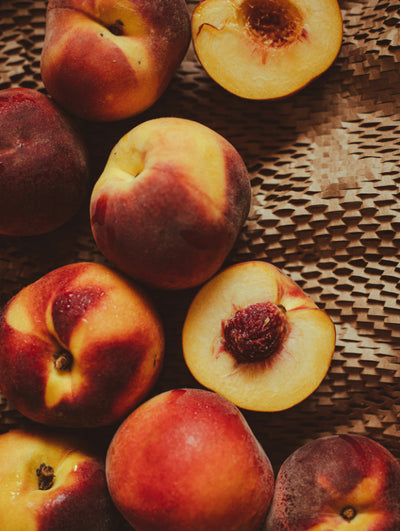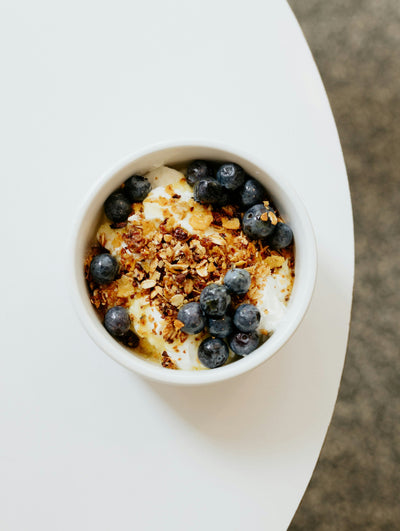Whilst holidays can be a time of pure joy, they can also be a little challenging on the health front. We want to enjoy everything the holidays have to offer, but we also want to get to the New Year feeling and functioning well, so here our top tips on how to stay healthy – whilst still enjoying the fun.
Front-load your day with nutrition.
When things really start to kick off, try to front-load your day with nutrients that help set you up for success. Gone are the days of fasting before a big night out; this can leave you feeling starving, edgy and far more likely to overindulge. Instead, try to use breakfast and lunch as opportunities to pack in protein, phytonutrients and fibre. This means you’ll be getting essential nutrients for your gut, appetite and metabolism before you go out in the evening, and you’ll feel more satiated and less likely to overdo it.
To skip or not to skip?
If you've overdone it there's no harm in skipping a meal, assuming that when you do eat, your first meal of the day is balanced and full of healthful food (think protein, fibre, and phytos, like above). A lot of people advise against restricting food after indulgence, but it's not necessarily a bad tactic if your overall mindset and approach is one of balance. Restricting as a punishment is a hard no from us. Instead, a positive way to reframe this approach is balancing out lighter days with heavier days; if we never did this, it would be a challenging uphill battle! The key is to do it in a proactive and positive way. For example, if you've woken up panicking that you overindulged and then try to restrict yourself all day, without focusing on adequate protein or fibre, you'll likely overindulge and be miserable. The spike in stress hormones alone can lead to an unhappy gut and more intense cravings throughout the day. On the other hand, if you're relaxed about it and decide to balance out an indulgent day with a cleansing day of food or a time-restricted feeding window, it will feel far easier to follow. It’s important not to view it as a punishment.
Choose (relatively) clean alcohol.
There aren’t any ‘healthy’ alcohols, but enjoying drinks with friends and family is often a core aspect of social connection over the holidays, so there are ways you can lessen its effects. First and foremost, avoid sugary cocktails; the after effects of alcohol will be exacerbated by the excess sugar (think gut, mood, appetite). Clear alcohols have lower amounts of congeners, which can worsen hangovers and some of the negative physiological effects of alcohol, so vodka, clear tequila, and gin may be less damaging than brandy and dark rum. If wine is your drink of choice, white wine generally has a lower alcohol content than the equivalent size of red, and if you opt for dry wines over medium or sweeter wines, they will have a little less sugar. If you're the one entertaining, or if you're out at restaurants, you can also look for natural wines. Natural wines can be a fantastic way to minimise the effects of alcohol. They have less sugar because of the fermentation process, and have avoided exposure to pesticides, added sulphur dioxide and are free from the over 100 additives that are legally permitted in wine. Alcohol isn't subject to the same labelling requirements as food is, so when we drink regular wine, we are often consuming a whole host of chemicals that we don't know about. This can be one of the reasons why some wines can make us feel so horrible (especially for those of us who are sensitive). Whilst all wine will have some degree of sulphites, unless it's a natural, biodynamic wine, it will likely have added sulphites. Finally, if you're sensitive to histamine, a dry, biodynamic white wine may be a better choice. Regardless of what you're drinking, always rehydrate afterward with an electrolyte drink like Cellular Hydration. If you know you will be drinking more than usual, or are prone to hangovers, you can add a liver support like Deep Detox, which can protect your body from some of the negative effects of alcohol.
Throw out the ‘rules’ and be where you are.
We're often asked for a general rule for the holidays; should we be happy with a 70/30 approach? 60/40? The real answer is: it depends. If you are feeling great, are in good health, and have a consistent approach to nutrition and exercise, indulging a little more is over the holidays likely has a smaller negative impact, and net-net, the positive experiences you get from enjoying yourself will go a long way to keep you feeling good. These are the people who will likely find it easy to fall back into health habits right after Christmas without missing a beat.
If you are starting from a point of feeling unwell, whether this is from gut issues, hormonal symptoms/menopause, fatigue or anxiety, having a more measured approach would be beneficial. It doesn't mean you can't enjoy yourself, but it's important to be mindful of how the holidays fit into the overall picture. If overindulging for too long at Christmas means that you'll be unhappy and in damage control mode the first three months of your new year, it's not worth going all out. If you think about what the 70/30 rule looks like in practice, that could mean that almost 7 meals of the week are 'off', which is a lot! So, consider how you’re feeling as a start point, what’s really important to you during the holidays, and how well you usually recover after the holidays are over. This way you can be more confident about what’s important to you and choose the moments that are actually worth it with less overall stress. It's also helpful to have a positive plan in place for the new year. Stay tuned for something exciting...
Keep moving.
Even if you can't do your usual routine, try not to use that as an excuse to not move at all - ANY movement will help support your mood, energy and metabolism. A brisk walk after big meals is also great; walking can help reduce postprandial spikes in blood sugar and help keep your gut moving, so it’s a nice place to focus, and can become a great social or family ritual. If you're lacking sleep, move away from high-intensity cardio which may leave you feeling too wired or exhausted, and towards low to moderate-intensity workouts. If you're able to, try to keep up with strength training and longer, lower-intensity cardio (including walking). I love doing exercise snacks over the holidays; this can be as little as 5 minutes, but if you do it 10 times throughout the day it makes a big difference.
Take a beat.
When things are a little hectic, plan a few days where you can eat and move in a way that makes you feel balanced. Try our favourite Monday Reboot for an easy-to-follow boost to your week.
Stay consistent with supplements.
People often pause on their supplements over the holidays and adopt the mindset that they are wasted when your routine is off, but these are some of the times we find supplements the most supportive. More drinking and food with less sleep and less exercise can take a toll on immunity, gut health, energy and mood. Here are out favourite tools to get through the holidays and still feel great:
- For overall energy and metabolic support: Advanced Multi-Nutrient, which boasts over 40 bioavailable ingredients, including Glutathione, Wild Blueberry, Gynema, Sage and more.
- For gut help: GI Fix if you need something more comprehensive to support bloating and regularity, or Digest + Debloat for those times you need it.
- For Emotional Stress: Essential Magnesium, which has 300mg elemental magnesium, alongside Glycine and Malic acid for mood and energy.
- For enhanced detoxification: Deep Detox and Enhanced NAD+ Complex, which will support the liver, glutathione production, NAD+ levels, and cellular repair.

Disclaimer:
The information presented in this article is for educational purposes only and is not intended to diagnose, prevent, or treat any medical or psychological conditions. The information is not intended as medical advice, nor should it replace the advice from a doctor or qualified healthcare professional. Please do not stop, adjust, or modify your dose of any prescribed medications without the direct supervision of your healthcare practitioner.








































